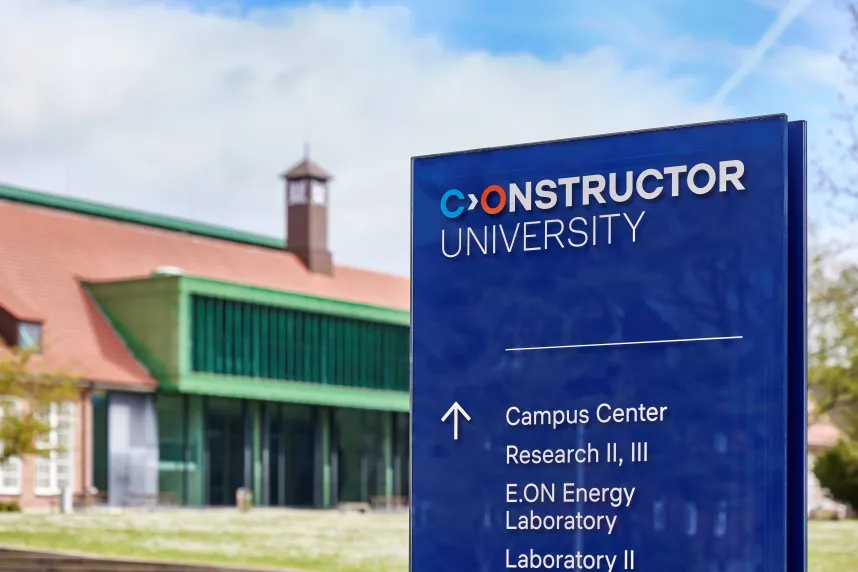Is quantum reality just a numbers game? New research shows that complex numbers are essential to understanding the universe
It‘s been the subject of debate since the earliest days of quantum mechanics: are complex numbers truly necessary to understand and predict quantum reality, or merely a mathematical convenience? Recently published research in Physical Review Letters by Constructor University physics professor Dr. Nicolas Gisin provides the most definitive evidence yet that when it comes to explaining the totality of the universe, normal numbers come up short.
Published in Physical Review Letters, Dr. Gisin’s article entitled “Partial independence suffices to rule out Real Quantum Theory experimentally” builds on his previous research, exploring the role of complex numbers in explaining and predicting quantum correlations. In a 2009 article (€) also published in PRS, Professor Gisin and others used a simulation model to prove it was possible to reproduce quantum correlations using only real numbers (an approach known as Real Quantum Theory) if the sources were maximally entangled. However, in a landmark follow-up experiment published in Nature in 2021, Professor Gisin et. al. showed that Real Quantum Theory fails when these network sources are independent and share no entanglement.
What’s in a number?
The significance of this research begins with understanding the difference between real and complex numbers. While real numbers refer to the linear quantities we’re used to encountering in daily life, the complex numbers used in quantum mechanics include both real and “imaginary” components (represented by the value i = √-1), which unlock whole new dimensions of complexity. Where real numbers operate on a line, complex numbers operate on planes. One analogy is to think of real numbers as a musical instrument like a flute that can play singles, monophonic notes along a scale. Complex numbers on the other hand open up a world of polyphonic possibility, akin to an orchestra capable of creating layered harmonics, chords and dynamics.
Complex numbers have been fundamental to quantum theory from the very start, but physicists have long wondered whether they are truly necessary to understanding the quantum world, or a sort of mathematical shortcut that may one day be replaced with a simpler model using only real numbers. However, Dr. Gisin’s latest research offers the most conclusive evidence yet that the universe is truly a symphony of complexity that requires complex numbers to understand.
Where real numbers fall flat
In this latest study, Professor Gisin alongside colleagues from the University of Geneva and Institute Polytechnique de Paris relaxed the assumption of full independence of the sources to explore whether Real Quantum Theory could still reproduce quantum results in networks with sources that are partially entangled. However, the results conclusively demonstrated that even when sources share some limited entanglement or correlation, the complexity of quantum reality cannot be replicated using only real numbers and requires the use of complex numbers.
“With this study we set out to fully answer the question of which quantum correlations can be reproduced using only real-number Hilbert spaces, by assuming epsilon-independence,” said Professor Gisin. In other words, is it possible to reliably reproduce quantum results using only real numbers between sources that are anything less than 100% correlated? “What we found in this network scenario is that you simply cannot reproduce the correlations that complex-number quantum theory predicts using only real numbers, even if you allow the sources to be somewhat connected. This shows that complex Hilbert spaces are more than just a theoretical tool or convenience, they are physically necessary to our understanding of quantum reality.”
The findings provide definitive validation for foundational theoretical concepts that have underpinned quantum mechanics since its earliest days. “Even Schrödinger, the father of quantum mechanics, wondered if complex numbers were truly necessary, or a sort of temporary placeholder to be resolved in the future,” said Dr. Gisin. “It took 100 years, but not only have we resolved this question, we have shown that they are absolutely necessary.”
While the implications of this latest research for technology or industry may not be immediately apparent, Dr. Gisin is optimistic that the symbiotic dynamic between theory and application will continue to fuel new insight and discovery in quantum mechanics: “Physicists have endless imaginations,” he explained. “So while this may provide a definitive conclusion within standard Hilbert space quantum dynamics, there are always new ways to change the rules of the game.”
“People often assume a one-way flow from academic theory to real-world applications, but just like quantum correlation, the relationship is more complex. They often resonate and feed one another in both directions, with foundational theory leading to new technologies, which in turn open new channels of theoretical exploration.”
About Dr. Nicolas Gisin
Dr. Nicolas Gisin is an award-winning Professor of Quantum Information and Communication at Constructor University and the University of Geneva, and serves as a member of the Constructor Group Strategic Advisory Board.
Dr. Gisin’s work in both experimental and theoretical physics has contributed significantly to the fields of experimental quantum cryptography, long-distance quantum communication in standard telecom optical fibers and foundational quantum mechanics. He also co-founded ID Quantique, one of the world’s leaders in the field of quantum information and communication technologies.
Dr. Gisin has received a number of major awards in science and physics, including:
- Micius Quantum Prize 2023, awarded by the Chinese Micius foundation. This is the largest Chinese prize in the field of quantum mechanics
- Swiss Science Prize 2014 awarded by the foundation Marcel Benoist. This is the highest Swiss prize for all sciences, awarded once per year to a single person (2014)
- Quantum Communication, Measurement and Computing award, QCMC’14 (2014)
- Volta Medal from the University of Pavia, Italy (2015)
- ERC Advanced Grant on “Quantum Correlations” (2008)
- John Stewart Bell Prize for Research on Fundamental Issues in Quantum Mechanics and their Applications (2009)
